 Most things that hide in plain sight are crucial to your success in life. You may be staring at them, but like a color blind person looking at the colored dots that hide the number… you cannot see.
Most things that hide in plain sight are crucial to your success in life. You may be staring at them, but like a color blind person looking at the colored dots that hide the number… you cannot see.
1Between you and me: you probably have never asked yourself “What is it I am not seeing?” have you?
Why don’t you ask, why don’t you don’t look?
- If you think that you know everything: you won’t look.
- If you think you see clearly what’s in front of you… you won’t look.
.
You never suspect that there is something you don’t see or don’t know… Even though it should be obvious by now, than when things don’t work as expected, there is something you don’t see or don’t know. But you don’t ever think there is something you don’t see… do you?
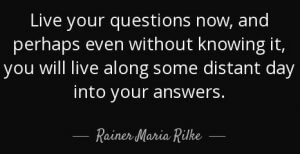 The biggest reason you don’t see is because you don’t think there is anything there
The biggest reason you don’t see is because you don’t think there is anything there- the second biggest reason is because you can’t see… Can’t see much of anything, because you are looking in the mind
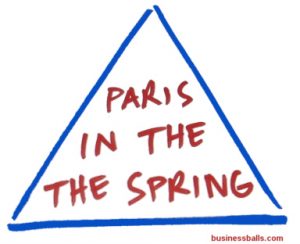 The invisible part of reality is in reality, not in the mind. In the mind you’ll see what you have always seen…
The invisible part of reality is in reality, not in the mind. In the mind you’ll see what you have always seen…
.
- I have been training myself to know that I can’t see everything, or I can’t see accurately
- I have been training myself to look wide and deep
- I have been training myself to suspect that often I see one thing, but what’s there is something else.
I am doing this self-training consciously and I have been doing it several times every day for more than a year. I am doing it while I do what I always do. Not as an event… by as a “how”. Not a what that means taking time out from the things I do. I do the things I do in this self-training way.
I don’t expect myself to improve just because I know what’s in the way. I expect myself to improve because of deliberate practice.
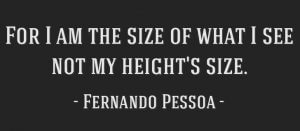 Asking “What am I not seeing?” is an excellent way to snap myself out of doing thing without deliberateness…
Asking “What am I not seeing?” is an excellent way to snap myself out of doing thing without deliberateness…
The reason why people don’t improve, why you don’t improve, even if they/you do things daily, because you don’t do things with the intention to get better at them. Deliberate means: done consciously and intentionally. Because without increasing the challenge, speed, width, depth, nothing will change.
Deliberate practice: repetitive performance of intended cognitive or psychomotor skills, deliberately, consciously, intentionally.
Consciously means: knowing exactly what you are working on.
All of my spiritual practices require of you to know exactly what you are working on. If the practice isn’t producing the required or expected result, the error is most likely in your misunderstanding of the practice, misunderstanding what you are working on.
I have watched personal trainers suggest stretching methods for certain muscles that don’t even address the muscle in question… You are like that personal trainer… They/you never suspect that you can’t see that you are off… way off.
I know chess players who haven’t improved in the past 20 years, even though they play every day. Musicians, language speakers, writers, speakers, lovers, mothers, unless you bring a deliberate intention to your practicing, you won’t improve.
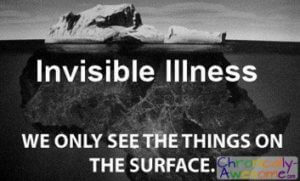 Back to not seeing…
Back to not seeing…
I often have conversations, coaching calls, where the next question’s answer was already spelled out, maybe a minute earlier.
NEVER in my 30 plus years of coaching/teaching practice I had anyone who didn’t go to their mind to look for the answer to my questions. Meaning: you “naturally” go to your mind to find answers… to see what you are not seeing. It’s not there!
In computers the ongoing conversation is stored on a RAM chip… And in your brain it is stored in short term memory.
If your short term memory is fragmented, too little capacity, frazzled, never emptied, or any other way faulty, your chances of learning much of anything are between zero and none.
One of the ways this lack of RAM manifests also shows up is in doing the 67 steps as a coherent whole.
Most steps are delivered in long drawn out sessions by Tai… and unless you can have it all in front of you on your RAM, you cannot even answer the questions: what is the principle here? What should have I gotten from this that is useful to me? What is relevant, and what is story? And how does this apply to me?
These simple questions activate your RAM so you can retain the content of the step on your RAM. But you definitely need to learn how to defragment your RAM, and how to dump what’s occupying it. 2
When I started doing the 67 steps two years ago in February, it was hard for me to not get taken away from the gist, the essence, the principle. It was hard for me to see the forest for the trees.
It’s been a great training. More than the content, being able to see what is hidden in stuff in front of you…
Every time I listen I ask those questions, and I am not taken to rides… the context remains the context… the principle.
Priceless.
.
.
.
.
OK… Article done… but I have a question:
would you like to participate on a weekly call where I address different topics and attempt to penetrate the invisible paradigm, the invisible part of reality?
I am talking about a call where I don’t say what I already know, or not much of that… Maybe 20%? And the rest is as surprising to me as it is surprising to you?
I have been doing this once a week, and I could use another call… to increase the frequency of my exposure.
The calls are free, but I reserve my right to refuse you if you can’t listen well…
Question 2: I have hundreds of such calls recorded.
Do you know anyone who could listen to them and clip out the parts that are useful and people would love to hear… Those could be part of a podcast: The Empath’s guide, or the Empath says…
Please let me know.
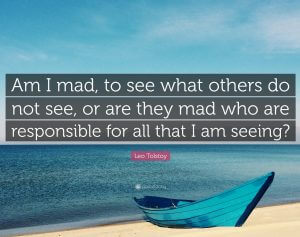 The truth value of what you can find to read, whether it was written by a PhD or a lay person, is around 7%.
The truth value of what you can find to read, whether it was written by a PhD or a lay person, is around 7%.Most of what is said is not true by virtue of it being false… And a very large part makes the whole of what is being said is because it is a very partial truth: narrow cone of vision. But asking the question: what is it I am not seeing may trigger the kind of looking that could dig that or at least some of it out of the invisible… even if it is invisible for everyone.
This is MY methodology: I ask that question to penetrate the invisible part of reality.
I call it channeling, but it is, of course, isn’t channeling, but everyone knows that channeling is good, and no one has a word, good or bad, to penetrate the invisible part of reality. So calling it channeling has stuck.
The truth value of what I say, on average, is above 60%… and that “channeling” is the reason… The other reason is muscletesting while connected to All-Knowledge which I lovingly call Source.
I do most of my work in conversations, including when I write an article. I don’t just write an article, I have one, two or more specific people I talk to in my writing… because it is of special interest to them.
Depending on the vibration of the person addressed, an article is popular or goes right over people’s head.
People can relate to the parts I write to my low vibration students… they can find themselves in it.
I am selfish, I write more conversational articles to my high achiever students… at the expense of my popularity.
This has been one of the things that was invisible until I asked the question today “What is it I am not seeing?”
- I probably should do a session on that! Defragment and empty the trash!

Thank you Miko.
I have a sneaking suspicion, that without those questions, or similar ones, one renders oneself the “what the heck happened” person in every area of life… You know the three kinds of people: making things happen, watching things happen, and wondering what happened…
I’m also up for the weekly calls, Sophie.
I’m starting to get what you mean by RAM and the importance of asking for what’s the principle first. Repeating the first 10 steps over and over, and then listening to some twice in a row, definitely helped me see what I didn’t before. But asking those questions you mentioned consciously seems to take it to a whole other level.
Thank you Ronda.
Yes, I would like to participate in a weekly call where you address different topics and attempt to penetrate the invisible paradigm, the invisible part of reality.
I’m not seeing things, and I need guidance on getting out of my mind.
Bernice, I am going to publish your comment because you may be right and maybe there are many people who think spiritual practice or anything spiritual comes from your spirit… whatever spirit might be.
Spiritual means it is invisible for the naked eye, the physical eye.
This spiritual practice is a practice to do something in the invisible, in this particular exercise, get you out of the mind, which is actually not easy.
I confess that my writing is not suitable for people who have a different belief system, like yourself.
Had you wanted to do the practice, you would have asked for clarification, I guess… But you just don’t like it, I get that. It is much more comfortable to pontificate than to do something, learn something new that could make you happier, wealthier, more fulfilled and healthier.
I am not sure if it is me or if indeed the grammar, context and structure of your sentences is distracting me from what you’re actually trying to convey. For instance this paragraph:
“All of my spiritual practices require of you to know exactly what you are working on. If the practice isn’t producing the required or expected result, the error is most likely in your misunderstanding of the practice, misunderstanding what you are working on.”
Let me try to break down the sentence (from a reader’s perspective) who is reading trying to understand what you may be trying to state.
“All of my spiritual practices require of you to know exactly what you are working on. [All of YOUR spiritual practices require ME to know what I am working on.]
If they are YOUR spiritual practices, how am I to KNOW what I am supposed to be working on. They are YOURS and YOUR spirit receives guidance and understanding in very different ways than possibly another.
Continuing…
“If the practice isn’t producing the required or expected result, the error is most likely in your [MY] misunderstanding of the practice, [WHICH IS REALLY YOURS] misunderstanding what you [I AM] are working on.”
Breaking it down:
Why would you insue the student isn’t producing results because they do not understand YOUR spiritual practices? Therefore, it is the student who is error or is lacking in productivity?
In working with students, from various different backgrounds, it would be fair to state they would each be on varying different levels of spiritual evolution as well. Therefore, YOUR spiritual practices may not be particularly suited for all students.
In the classroom of spiritual self mastery, allowing the spirit to direct the discovery of learning would seem much more advantageous to both the teacher and the student. Spirit would never insue one is lacking in understanding but rather cultivate an environment of complete receptivity, through clearing the delicate lines of communication, for all in the classroom to be edified. Therein is love.